If you’ve heard of CPU water cooling but never delved into its details, this guide will provide all the insights you need. As CPUs and GPUs become faster and more compact, the heat they generate increases, often surpassing the cooling capacity of traditional air cooling systems. This is especially true for overclocked systems or high-density builds with multiple GPUs.
Liquid cooling offers a superior solution, efficiently dissipating heat and enabling quieter, faster, and cooler performance. Let’s explore why CPU liquid cooling is essential, how it works, and how to choose the best cooling system for your setup.
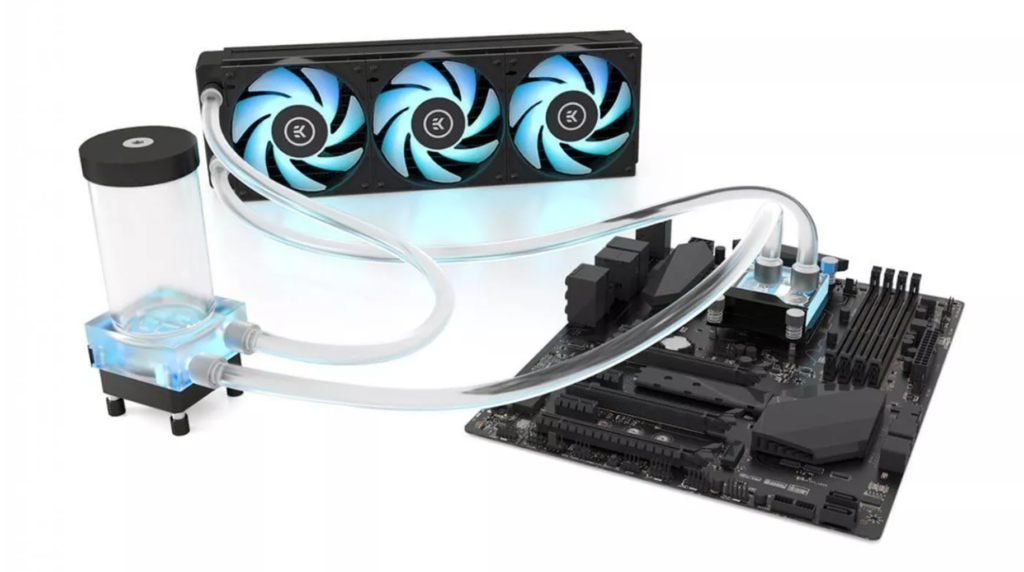
What is Liquid Cooling?
Liquid cooling uses a liquid, typically water, to dissipate heat from computer components such as the CPU and GPU. Since water conducts thermal energy 30 times faster than air, liquid cooling is far more efficient at managing high thermal loads. The process involves circulating coolant through a system of tubes, transferring heat from the CPU or GPU to a radiator where fans expel it.
Much like a car engine’s cooling system, liquid cooling ensures optimal thermal management, enabling components to function at higher speeds while remaining cool and quiet. This technology is particularly popular in high-performance desktop PCs, gaming systems, and systems designed for overclocking.

Why is a CPU Water Cooling System Important?
Modern CPUs and GPUs generate significant heat due to their high processing power and clock speeds. Effective cooling is crucial to prevent overheating, which can degrade performance and even cause system crashes. Here’s why a liquid cooling system is an essential upgrade:
- Enhanced Performance:
By maintaining optimal temperatures, liquid cooling allows CPUs and GPUs to run at higher clock speeds, unlocking their full potential. - Stable Overclocking:
Liquid cooling is a preferred choice for enthusiasts pushing their hardware beyond factory limits. Its superior thermal management supports stable and efficient overclocking. - Prevents System Failures:
Overheating can slow down electronic signals, leading to inaccurate computations and system crashes. Liquid cooling mitigates these risks, ensuring system stability. - Reduced Noise Levels:
Liquid cooling is generally quieter than air cooling, as fans run at lower speeds, and the pump operates with minimal sound. - Longevity of Components:
Efficient cooling prevents thermal damage, extending the lifespan of your hardware.
How Does a CPU Water Cooling System Work?
Liquid cooling systems consist of several components:
- Water Block: Transfers heat from the CPU/GPU to the liquid.
- Pump: Circulates the coolant through the system.
- Radiator: Dissipates heat from the coolant with the help of fans.
- Pipes or Tubes: Transport coolant between components.
- Reservoir (optional): Stores extra coolant for enhanced thermal capacity.
The coolant absorbs heat as it flows through the water block attached to the CPU or GPU. The pump then circulates the heated coolant to the radiator, where fans cool it down. The cooled liquid is recirculated, maintaining optimal temperatures for your system.
Liquid cooling systems can be categorized as:
- Closed-Loop (All-in-One): Pre-assembled and sealed systems, ideal for beginners and single-component cooling.
- Open-Loop (Custom): Customizable setups designed to cool multiple components, offering greater flexibility and scalability.


Liquid Cooling vs. Air Cooling
| Feature | Liquid Cooling | Air Cooling |
|---|---|---|
| Cooling Efficiency | Superior, especially for overclocking | Limited, struggles with high thermal loads |
| Noise Levels | Quieter due to fewer high-speed fans | Louder, as fans often run at high RPM |
| Aesthetics | Sleek, modern designs with customizable options | Bulkier, with large heat sinks |
| Installation | Requires more effort but allows flexibility | Easier to install |
| Price | Generally more expensive | More affordable |

Factors to Consider When Choosing a CPU Cooler
When selecting a CPU cooler, consider the following:
- Cooling Capacity:
Ensure the system can handle your CPU’s thermal design power (TDP). - Installation and Compatibility:
Check that the cooler fits your case and is compatible with your CPU socket. - Noise Levels:
Choose a cooler with quiet operation, especially if you value a silent PC. - Size and Design:
Opt for a compact and aesthetically pleasing design if space is limited. - Budget:
While liquid cooling is more expensive, it offers superior performance for high-end builds. - Advanced Features:
Consider models with customizable RGB lighting, intelligent temperature controls, and enhanced durability.
Why Coolingstyle Liquid Cooling Systems Stand Out
Coolingstyle’s CPU cooling systems integrate advanced compressors for unparalleled cooling capacity. Key features include:
- Compact, lightweight design.
- Superior temperature control with minimal noise.
- High cooling efficiency, even for overclocked CPUs and GPUs.
- Easy installation and compatibility with most systems.

Conclusion
While air cooling remains a viable option for budget builds, liquid cooling is the superior choice for high-performance systems. It ensures better thermal management, quieter operation, and enhanced hardware longevity.
If you’re aiming for top-tier performance, liquid cooling is a worthwhile investment. Choose a reliable system like Coolingstyle’s liquid cooling solutions to ensure your CPU and GPU operate at their best.

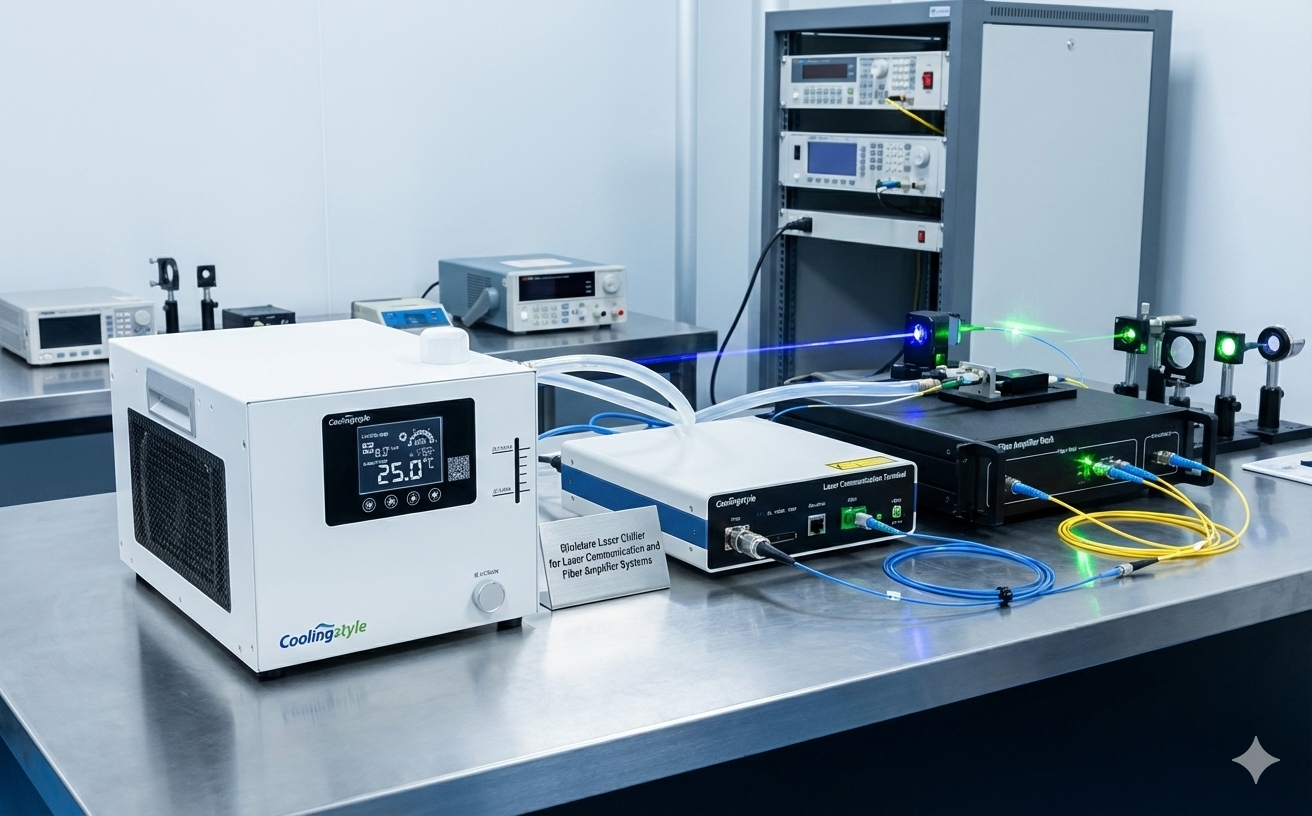
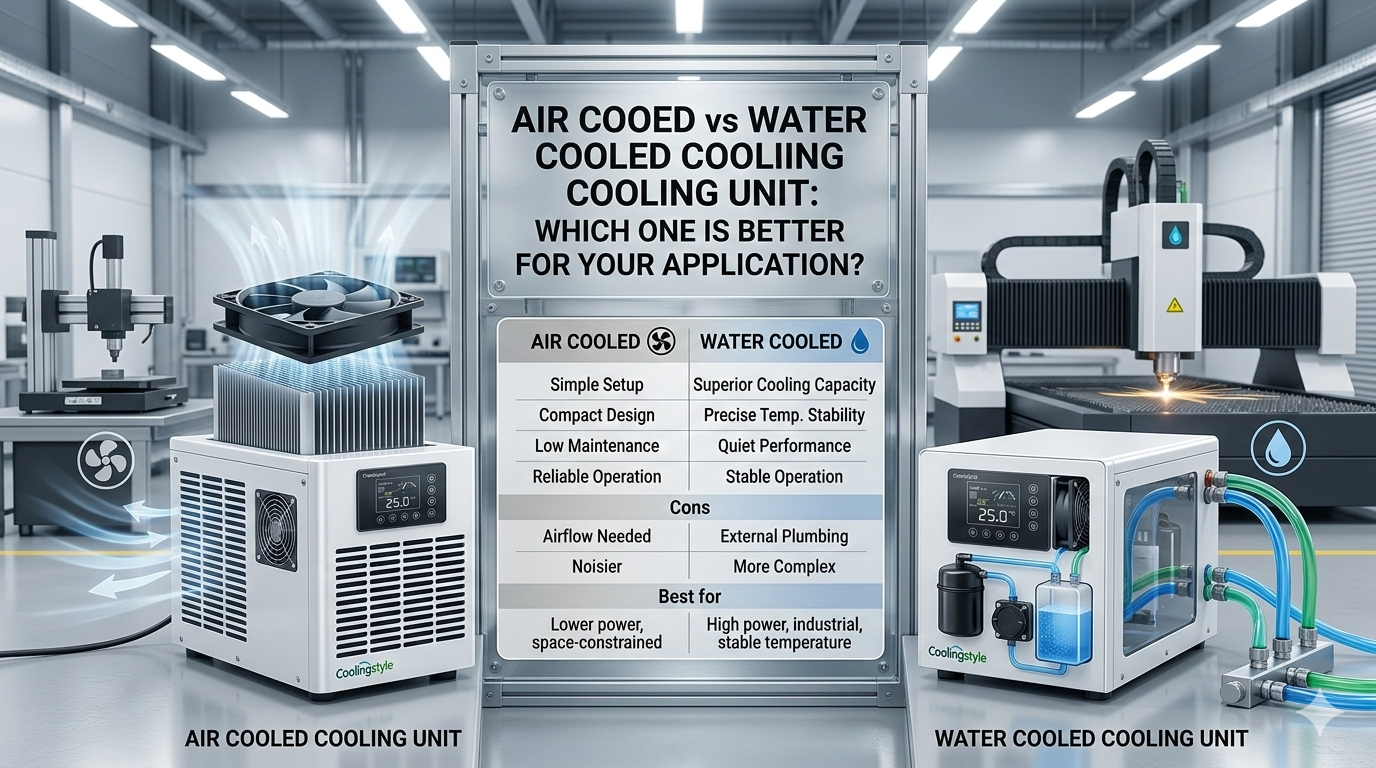
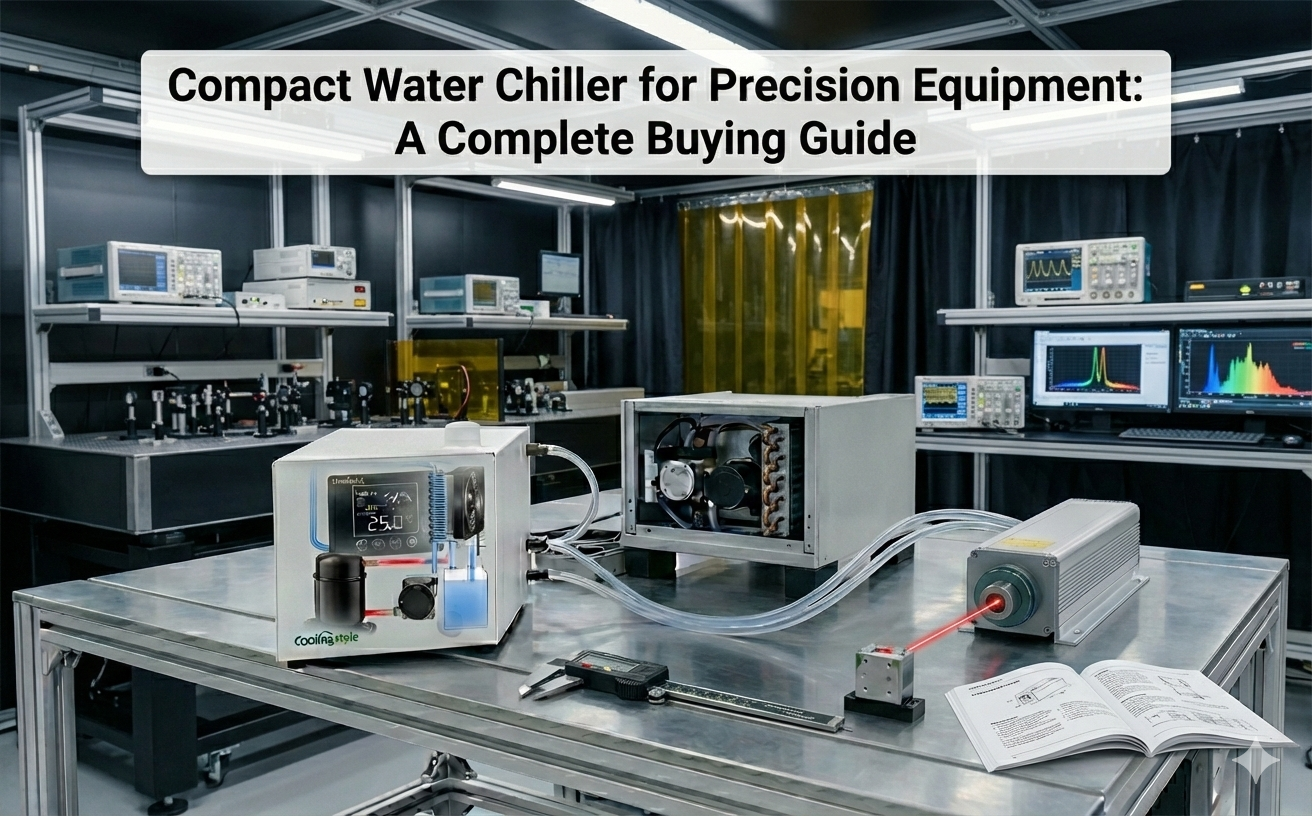
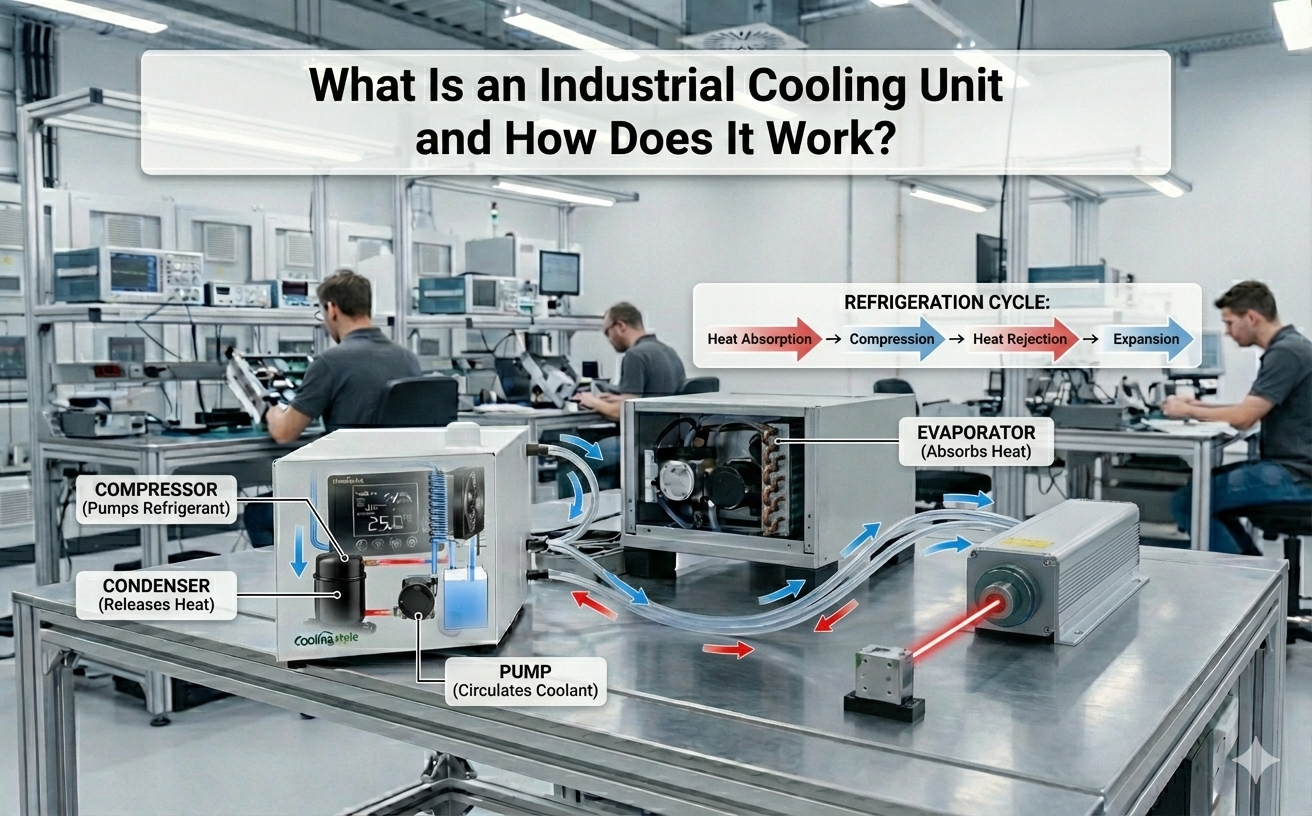

2 thoughts on “CPU Liquid Cooling: A Must-Have for High-Performance Computers”
I love what you guys are up too. This kind of clever work and reporting!
Keep up the superb works guys I’ve added you guys to our blogroll.
Pingback: 4 Steps to Optimize Server CPU Cooling for Engineers - Gagner-Toomey Associates